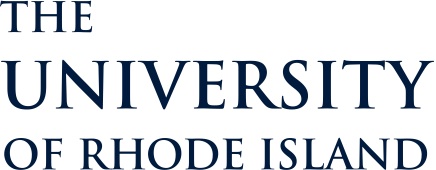For Immediate ReleaseFor Further Information: Todd McLeish , (401) 874-7892, [email protected]
URI scientist seeks cancer drugs in the sea;$1 million grant funds five-year effort
KINGSTON, R.I. -- February 19, 2001 -- Most cancer fighting drug treatments currently in use yield low cure rates or undesirable side effects. While widespread and aggressive efforts to develop new anti-cancer drugs focus on terrestrial plants, a University of Rhode Island researcher has pioneered the search for potential anti-cancer agents in the oceans.
Yuzuru Shimizu, URI professor of biomedical sciences, has spent 30 years studying marine microorganisms, first to better understand the cause of red tides, and later to identify organisms that may be potential sources of anti-cancer drugs. Shimizu has just been awarded a five-year $1 million grant from the National Cancer Institute to continue this promising work. This is his second five-year grant from the institute.
Shimizu's research is part of the National Cooperative Natural Products Drug Discovery Group, a partnership between academia and the pharmaceutical industry aimed at finding new drugs. He is collaborating with researchers at Scripps Institution of Oceanography and the Bristol-Myers Squibb Pharmaceutical Research Institute.
"We've found a number of good leads that need further investigation," said Shimizu, a resident of Kingston. "Some of the same toxic organisms that cause red tides also have the potential to produce useful drugs. Drugs and poisons can sometimes be synonymous."
Shimizu primarily investigates the potential pharmaceutical uses of microalgae, which he says are a great source of interesting and unexplored chemical compounds. Microalgae are primitive, single-celled organisms that live in a variety of unique environments and have a high potential for producing novel chemical structures and potent biological activities.
According to Shimizu, there are thousands of different species of microalgae, so finding the few that might benefit mankind is a lengthy, difficult process. But he is convinced that this group of organisms is a rich source of compounds that may lead to new drugs.
"If we can find a couple promising species out of every thousand we look at, I'd be pleased," he said. He was recently issued a patent for one potential cancer-fighting compound he discovered from microalgae.
Using an innovative and proprietary system he developed, Shimizu collects microalgae from throughout U.S. coastal waters for later study in his lab. The most promising sites so far have been around Hawaii, the Caribbean and in the Salton Sea in California.
A walk through Shimizu's lab finds room after room of test tubes, jars and jugs growing various species of microalgae at all different temperatures.
To test for anti-cancer properties, Shimizu isolates the organisms from salt water and cultures them in quantity. He then extracts organic compounds from the culture and sends them to the Bristol-Myers Squibb lab to be applied to cancer cells. Those with promising characteristics are cultured in mass quantities for further testing and for isolation of the active constituents.
When asked why some species have anti-cancer properties while others don't, Shimizu simply smiled and replied, "That's the billion dollar question."
#####
Photo available
